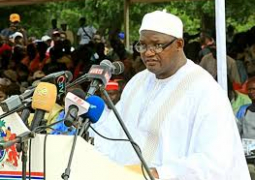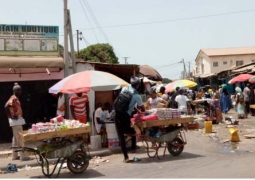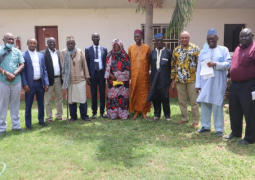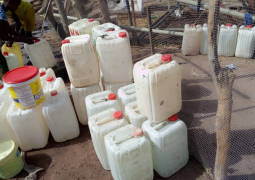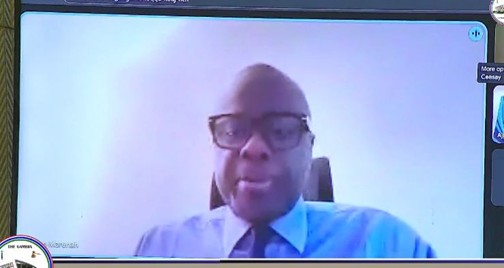
In his testimony (virtual) before the Special Select Committee on the sale and disposal of assets identified by the Janneh Commission, former Solicitor General and Legal Secretary Mr. Cherno Marenah on Tuesday lifted the lid on the tangled and chaotic management of former President Yahya Jammeh’s seized assets revealing missing communications, untracked inventories, and confusion among government departments that were supposed to secure the ex-leader’s multi-million dalasi properties.
Mr. Marenah’s testimony painted a picture of state machinery struggling to coordinate one of the most sensitive asset recoveries in Gambian history. He detailed how the Ministry of Justice (MOJ) and other state agencies scrambled to implement High Court Orders that placed Jammeh’s sprawling network of properties, vehicles, and livestock under government control.
From the start, he said, the orders known as MOJ 5A and MOJ 5C identified several key institutions, including the Registrar General’s Department, the Department of Parks and Wildlife, and the Gambia Livestock Marketing Agency, as custodians of Jammeh’s seized assets.
“I cannot remember the precise details of those meetings,” Marenah admitted, “but I know the thinking was to assign relevant departments to specific roles.”
Pressed on why the Registrar General was tasked with keeping custody of both land and movable assets, he explained that it was “in line with their role as custodians of landed properties.” Yet, he quickly conceded that most of the assets seized were not land but tractors, vehicles, and livestock, raising questions about the logic behind the assignments.
When asked whether detailed inventories of the seized assets were ever prepared, Mr. Marenah’s responded, saying: “To be fair, I do not recall specific instructions being given to prepare an inventory, but I do recall that a list of assets was eventually prepared.”
He confirmed that the Registrar General’s Office had conducted site visits from Banjul to Tujereng, identifying occupants and even issuing eviction notices. Yet, despite such major actions, records of those activities remain largely missing.
“There were a series of memos,” he said, “but whether those documents still exist at the Ministry of Justice, I cannot say for certain.”
He informed the committee that some departments, like the Department of Parks and Wildlife, never received the High Court’s instructions to take custody of Jammeh’s animals and wildlife reserves.
“That would be a surprise to me. As far as I recall, the line ministries were informed for onward transmission to the agencies. If the departments didn’t get the message, then the breakdown occurred at ministerial level.”
Despite his insistence that communication “would have been done in writing,” counsel said the records of such letters could not be found raising serious doubts about whether critical departments were ever officially notified.
Marenah also confirmed that Mr. Augustus Prom, was appointed as court receivers to manage Jammeh’s companies between 2017 and 2019.
He described their efforts particularly at the Abuko site as “challenging,” saying the receivers faced confusion, decaying infrastructure, and active employees on site. “They briefed us regularly,” he said, “and I attended some of those meetings.”
The former Solicitor General acknowledged that the Ministry held coordination meetings to implement the freezing orders but admitted he could not recall who attended. “There were many people,” he said.


